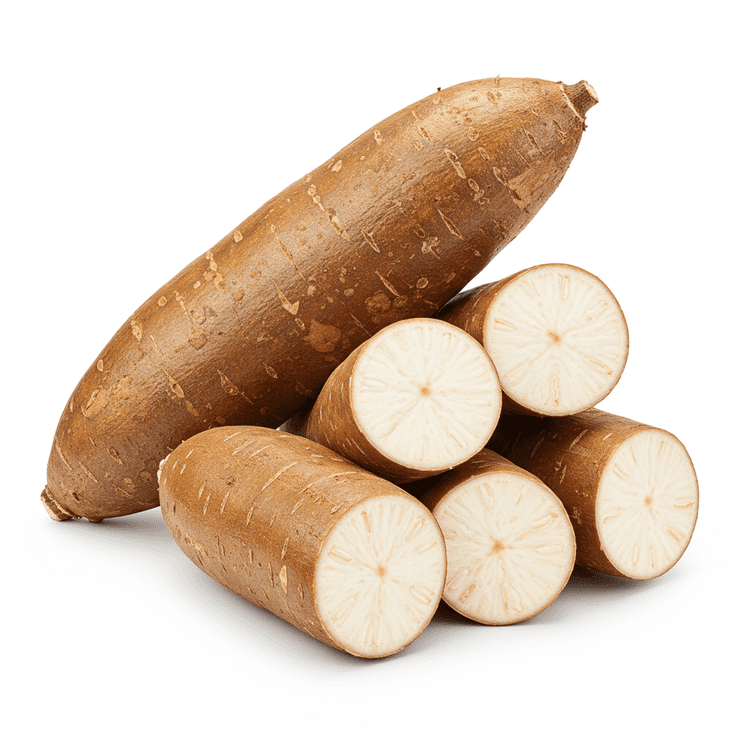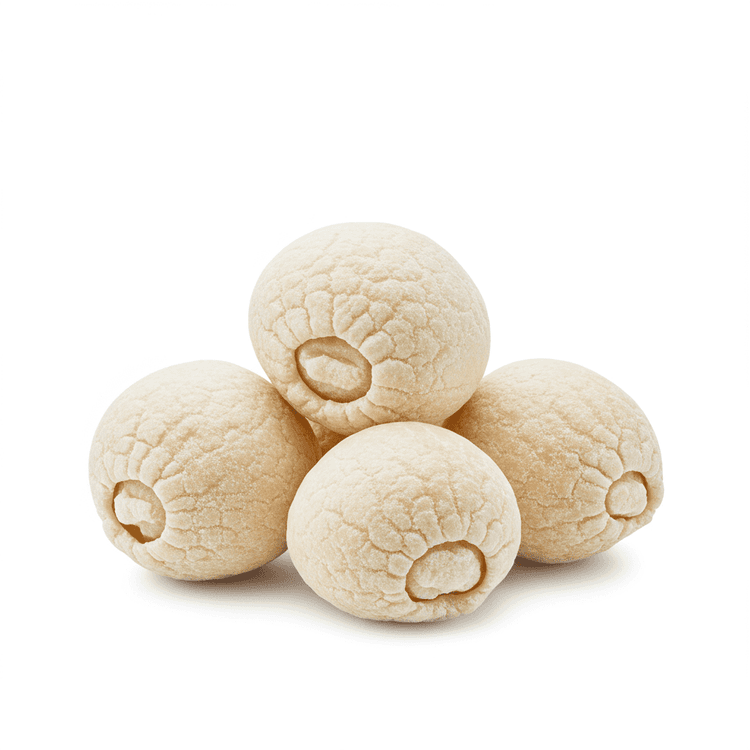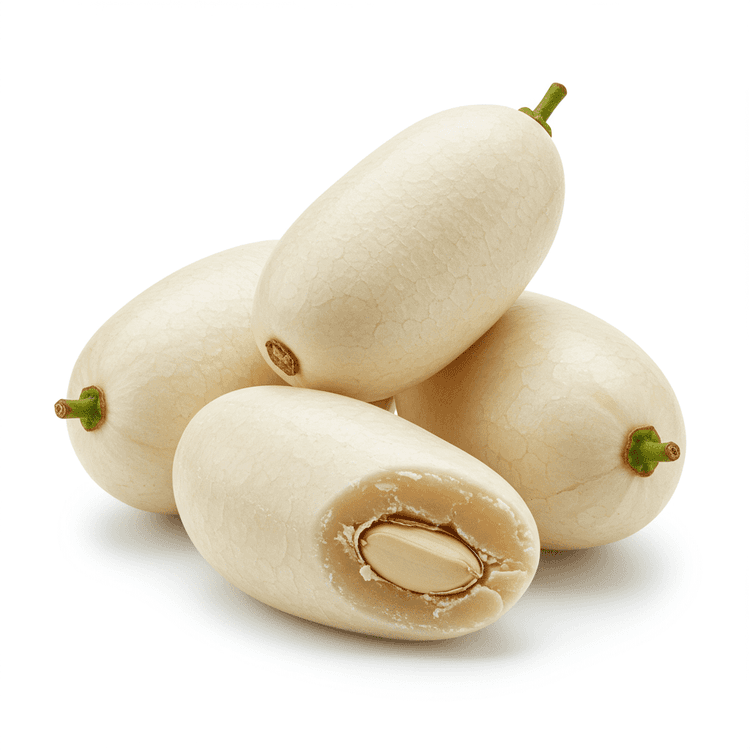
Cassava
Cassava, also known as yuca or manioc, is a starchy root vegetable widely used in tropical and subtropical cuisines. It has a mild, nutty flavor and a firm, fibrous texture that becomes soft and creamy when cooked. Cassava is typically brown-skinned with white flesh and is a versatile ingredient that can be boiled, fried, or ground into flour. As a gluten-free and carbohydrate-rich food, cassava is a staple in many diets and is prized for its ability to absorb flavors in savory and sweet dishes. Its high starch content makes it ideal for thickening soups, stews, and sauces, as well as for creating crispy snacks like chips and fritters. Always ensure cassava is properly prepared, as raw cassava contains naturally occurring cyanogenic compounds that must be removed through cooking or processing.
Common Uses
- Boil cassava and mash it to create a creamy, gluten-free alternative to mashed potatoes, perfect for pairing with stews and roasted meats.
- Fry cassava slices or sticks to make crispy cassava fries or chips, a popular snack in many cuisines.
- Use cassava flour as a gluten-free substitute in baking recipes for bread, cakes, and cookies, or to thicken sauces and gravies.
- Incorporate cassava into soups and stews by cutting it into chunks and simmering until tender, adding a hearty texture to the dish.
- Prepare cassava-based desserts like cassava cake or pudding by combining grated cassava with coconut milk, sugar, and eggs.
- Make fermented cassava products like tapioca pearls or gari, which are widely used in desserts, beverages, and savory dishes around the world.
Nutrition (per serving)
Nutrition (per serving)
Calories
160.0kcal (8%)
Protein
1.4g (2.8%)
Carbs
38.1g (13.85%)
Sugars
1.7g (3.4%)
Healthy Fat
0.1g
Unhealthy Fat
0.1g
% Daily Value based on a 2000 calorie diet
Nutrition (per serving)
Calories
160.0kcal (8%)
Protein
1.4g (2.8%)
Carbs
38.1g (13.85%)
Sugars
1.7g (3.4%)
Healthy Fat
0.1g
Unhealthy Fat
0.1g
% Daily Value based on a 2000 calorie diet
Health Benefits
- Rich in carbohydrates, providing a great source of energy for active lifestyles.
- Contains resistant starch, which supports gut health and promotes healthy digestion.
- Naturally gluten-free, making it suitable for individuals with gluten sensitivities or celiac disease.
- Provides essential minerals like magnesium and potassium, which support heart health and muscle function.
- Low in fat, making it a good option for those seeking a balanced diet.
- Contains vitamin C, which boosts immunity and supports skin health.
Substitutes
Chefadora AI is here.
Experience smarter, stress-free cooking.
Storage Tips
Cassava should be stored in a cool, dry place at room temperature if it is unpeeled and whole. Avoid direct sunlight to prevent spoilage. Once peeled, cassava should be refrigerated in an airtight container and used within 2-3 days. For longer storage, cassava can be frozen after peeling and cutting into smaller pieces. Ensure it is properly sealed to maintain freshness and prevent freezer burn.
Marnirni-apinthi Building, Lot Fourteen,
North Terrace, Adelaide, South Australia, 5000
Australia


